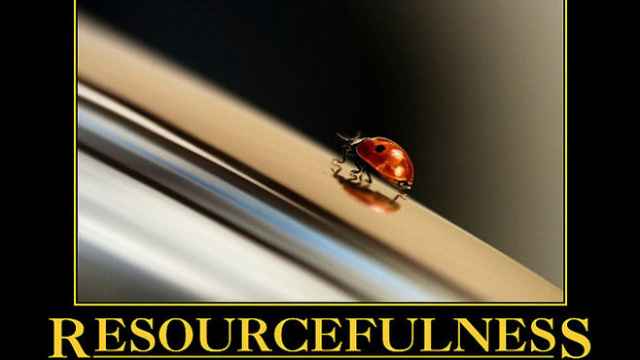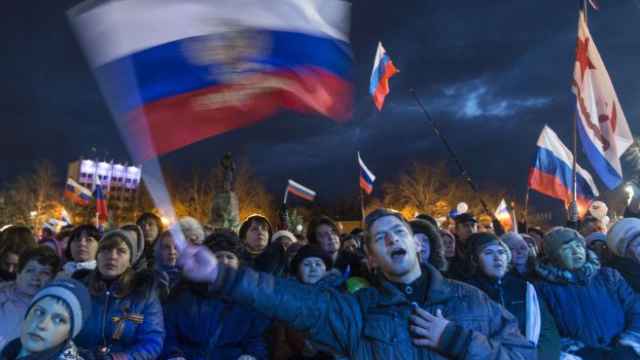There you are in the office, sniffing, sneezing, blowing your nose and coughing. Your nose is red, your eyes are dripping and you can barely talk. Your coworkers stay as far away from you as possible. Finally, after another round of explosive sneezing and coughing that efficiently disperses about a billion germs around the room, someone finally says: Может быть, вам домой? Кашель лечить надо! (Maybe you should go home? You really ought to get that cough taken care of.)
This everyday conversation in flu season seems simple enough. But a colleague's discussion about the word лечить made me realize that, like so much else in Russian, it's not quite as easy as it seems.
You can tell this from dictionaries. Лечить (to heal) has two definitions. One is to treat an illness, and the other is to cure it, or as they put it very carefully, "to take measures to stop an illness." So most of the time when you're translating — and you can imagine how crucial this is if you are a medical interpreter working with a patient in the hospital — you translate лечить as the process of treating an illness or medical condition. For example, Его лечили нетрадиционными методами: грязями, иглоукалыванием. (He was treated with nontraditional methods — mud and acupuncture.) Sometimes with the noun лечение (treatment, therapy), it's very clear that we're not talking about a cure: Лечение оказывается безрезультатным. (The treatment has no effect.)
But sometimes, just to make life interesting, Russians use лечить to mean curing an illness: Врач лечил меня быстро и навсегда. (The doctor cured me quickly and once and for all.) Or curing a metaphorical illness: От меланхолии лечит только общение с прекрасным. (The only cure for melancholy is spending time with beauty.)
Thankfully, most of the time Russian speakers use one of the forms of the verb — a perfective form, for all you grammar lovers — that means to cure. Вылечить is probably the most common: Бабушка быстро вылечила простывшую внучку народными методами. (The girl's grandmother used folk remedies to quickly cure her cold.) Как вылечить хронический бронхит навсегда? (How do you cure chronic bronchitis once and for all?)
Another verb that means to cure is излечить: Процент излеченных героиновых наркоманов во всём мире ничтожен. (Only a miniscule percentage of heroin addicts in the world are cured.) Излечить is often used in a phrase from the Bible: Врач, излечи себя сам. (Physician, heal thyself.)
And then there's the лечить verb that I loathe: залечить. It can mean to heal something, usually a wound or trauma. Он никак не может залечить травму, полученную в футбольном матче. (He hasn't been able to heal the trauma he got playing soccer.) Or: Время залечит раны. (Time heals all wounds.)
But get this: залечить has a second meaning that is just the opposite — to kill by incompetent medical skills. It's usually clear when this is meant: Однажды доктор Шапо чуть не залечил Хармса до смерти. (Once Dr. Chapeau's treatment nearly killed Kharms.) Or: Едва не залечили! Температура до сорока подскочила! (They almost killed him with their cure! His temperature went up to 104 degrees Fahrenheit!)
Let's stand up and applaud a language that uses one word for "curing by medical skills" and "killing by lack of medical skills."
Язык, излечи себя сам! (Language, heal thyself!)
Michele A. Berdy, a Moscow-based translator and interpreter, is author of "The Russian Word's Worth" (Glas), a collection of her columns.
A Message from The Moscow Times:
Dear readers,
We are facing unprecedented challenges. Russia's Prosecutor General's Office has designated The Moscow Times as an "undesirable" organization, criminalizing our work and putting our staff at risk of prosecution. This follows our earlier unjust labeling as a "foreign agent."
These actions are direct attempts to silence independent journalism in Russia. The authorities claim our work "discredits the decisions of the Russian leadership." We see things differently: we strive to provide accurate, unbiased reporting on Russia.
We, the journalists of The Moscow Times, refuse to be silenced. But to continue our work, we need your help.
Your support, no matter how small, makes a world of difference. If you can, please support us monthly starting from just $2. It's quick to set up, and every contribution makes a significant impact.
By supporting The Moscow Times, you're defending open, independent journalism in the face of repression. Thank you for standing with us.
Remind me later.








